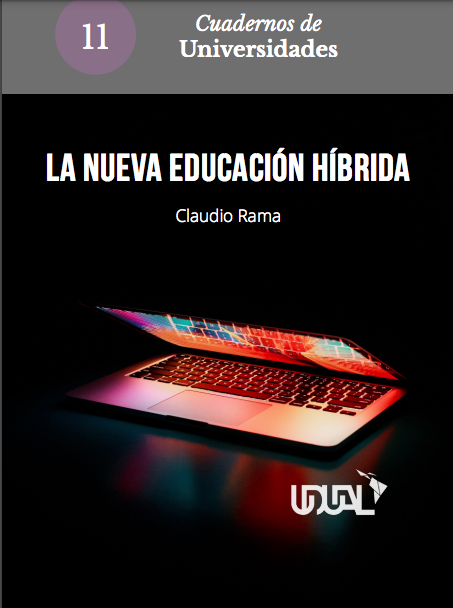Book: The New Hybrid Education

This text by Claudio Rama alludes to a current debate of the greatest importance in education. Particularly, in an underlined way, in the case of higher education. Many voices today advocate not returning to the type of educational model that we practiced before the pandemic, and emphasize the need to take advantage of this situation as a propitious one to initiate changes that, for a long time, were seen as necessary.
As we know, the virtuality imposed by force, due to the circumstances derived from the pandemic, has been located at the center of the modus operandi of universities and, in general, higher education institutions. Furthermore, many scholars of education intercede because technology is the building block of the new pedagogy and didactics. Of course, and fortunately, there are other parties that argue otherwise.
One of them is the opinion of Claudio Rama, who argues in favor of what he calls hybrid education. Expression that, despite still requiring many definitions and clarifications, illustrates that the pandemic, forced confinement and social distance, allowed to put into practice a virtuous combination of face-to-face education and virtual education.
The model, according to Rama, offers benefits. It allows a more efficient use of the infrastructure, for example, the expansion of educational coverage, but much more important, giving the student greater freedom to configure a tailor-made suit in their learning process. Teachers also benefit from this new approach to teaching and research.
The use of educational technologies that are available today, and that will surely develop much more in the near future, allows us to combine what is possible to do remotely with face-to-face service, which is also essential, and even more so in certain professions. It is a controversial issue and it is necessary to broaden the debate and discussion around these new alternatives that the pandemic uncovered, certainly.
It is not new but it requires more specificities and Rama pays in that sense. Cuadernos de Universidades has precisely that purpose. Help scholars of higher education issues make their innovative ideas available to wide audiences. And we certainly have to innovate. The pandemic has taught us enormous lessons that we cannot ignore and, above all, we must take advantage of.
This publication then serves as a starting point or continuity in the debate on what to do and, to a great extent, how to do it, what new pedagogies and didactics we need. For Rama, the hybrid model can be a successful exit. The door is open. Access the book of the Union of Universities of Latin America and the Caribbean here.






